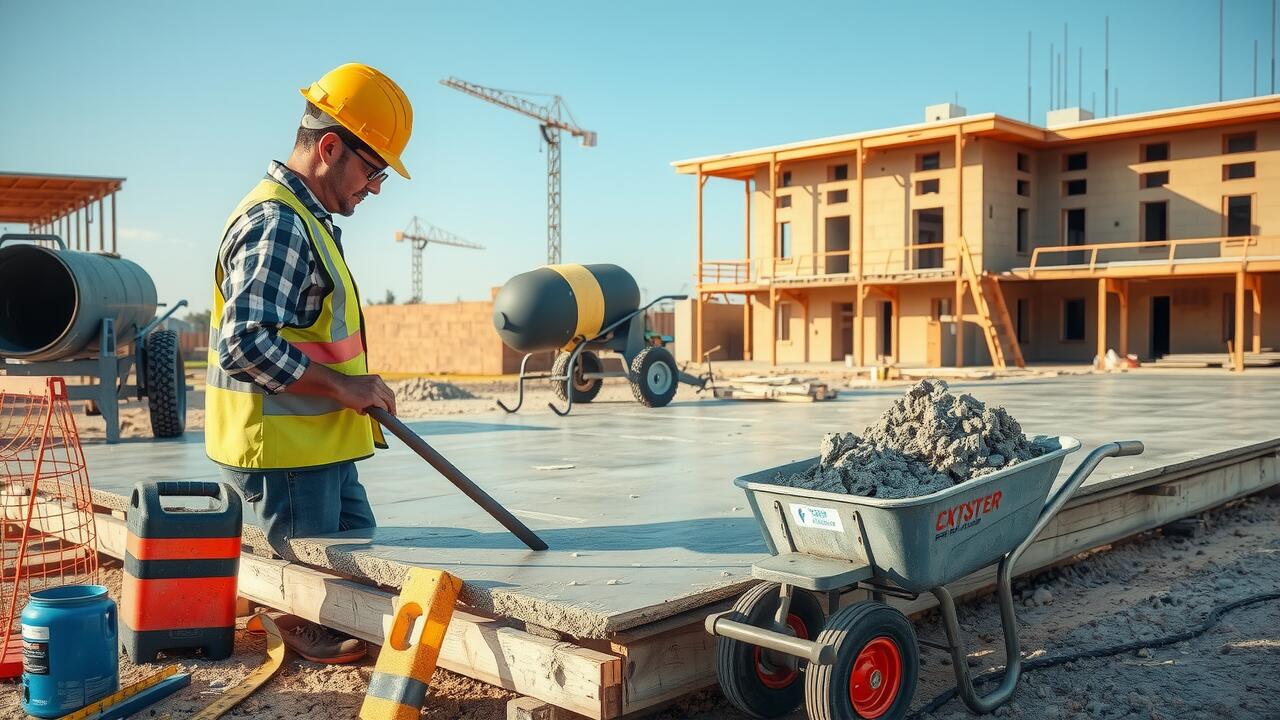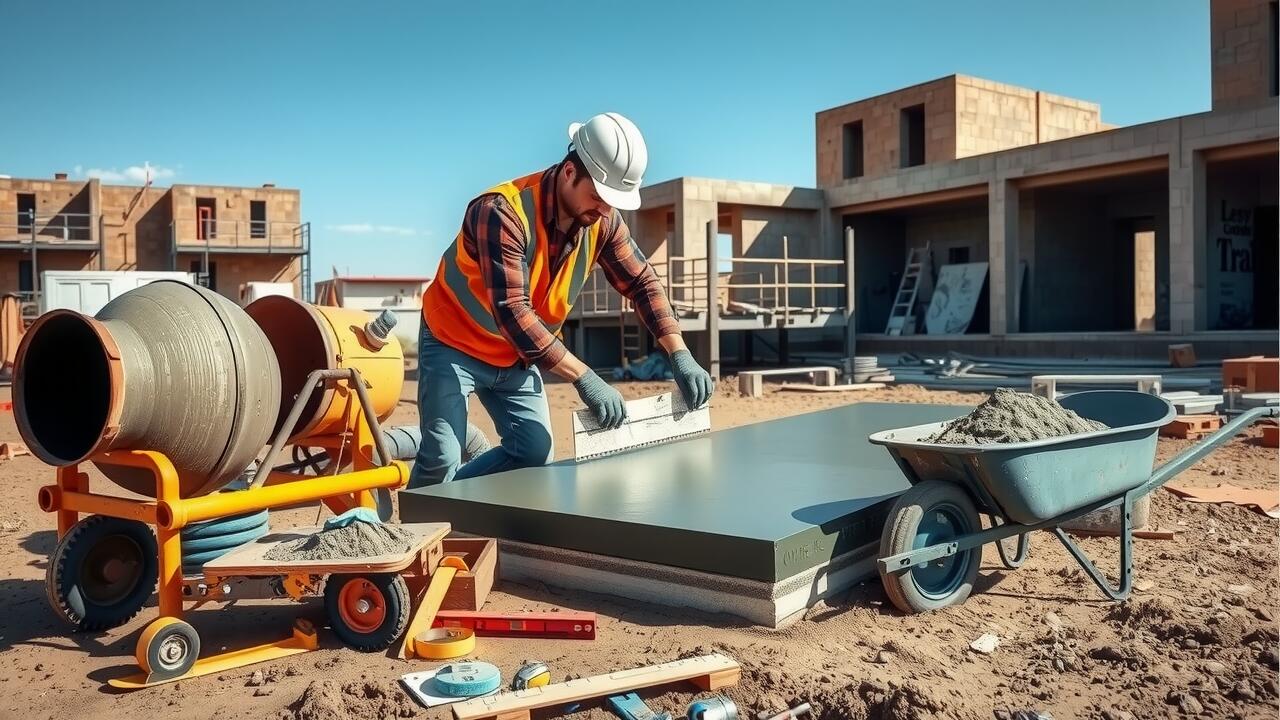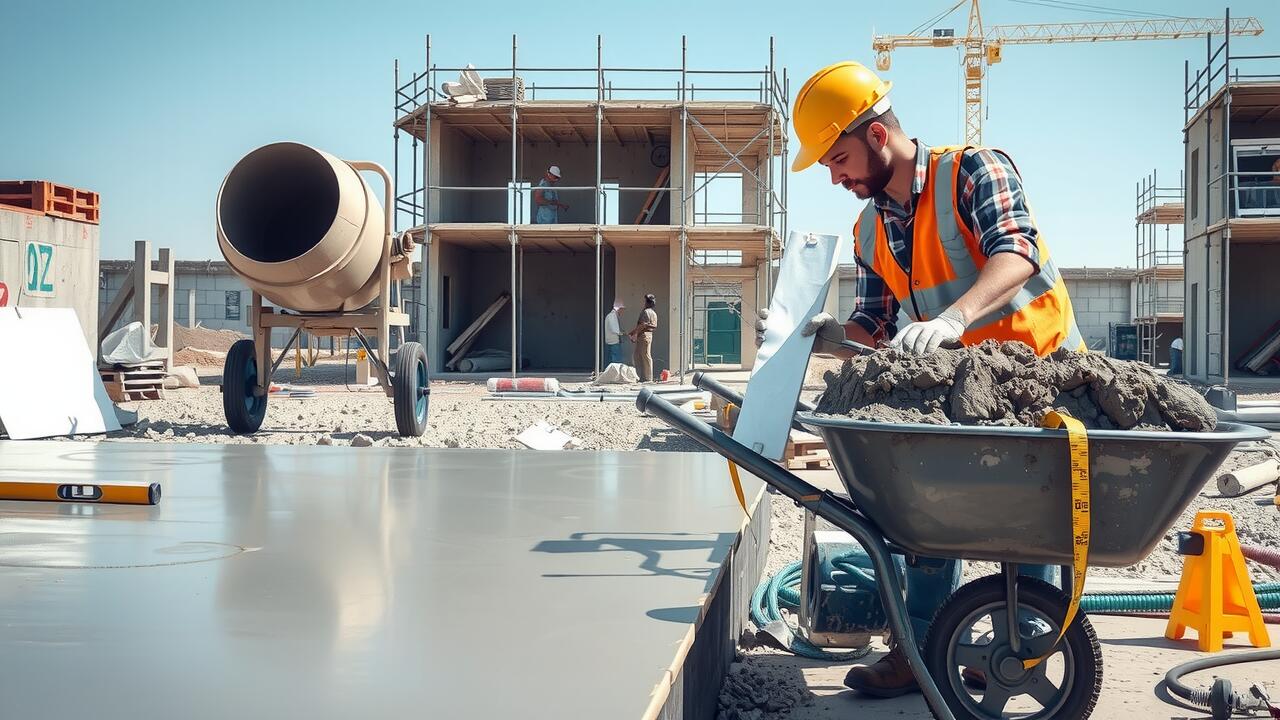
Table Of Contents
Seasonal Pricing Trends
Seasonal pricing trends in the concrete industry can significantly influence project costs. During peak construction seasons, typically late spring through early fall, the demand for concrete rises. This increase often leads to higher prices due to the greater workload faced by suppliers and contractors. In contrast, winter months can see a decrease in demand, resulting in potentially lower prices. Homeowners and contractors may find better deals during these colder months, particularly for projects like Plymouth, Minnesota Concrete Slab Installation.
However, there are also seasonal factors that can affect pricing beyond demand alone. Material availability and transportation costs may fluctuate due to weather conditions. For example, icy roads and heavy snowfall can delay deliveries, which can, in turn, lead to price increases as suppliers account for these delays. Understanding these trends can help those involved in construction and renovation projects budget more effectively and choose optimal timing for their concrete needs.
Impact of Weather Conditions
Weather conditions significantly influence concrete pricing in Minnesota. Cold temperatures can delay projects, impacting labor costs and material pricing. During winter months, extra measures such as heating may be required to maintain the right conditions for curing. Such adjustments can lead to higher expenses associated with the overall installation process.
In contrast, summer heat can also present challenges, particularly regarding the curing process. Hot weather can cause the concrete to set too quickly, requiring additional water and care to ensure a proper finish. For those considering Saint Michael, Minnesota concrete slab installation, understanding these seasonal factors is crucial for budgeting effectively and avoiding unexpected costs.
Concrete Mix Design Options
Concrete mix design options vary based on the specific requirements of a project. Standard mixes typically include a combination of cement, water, and aggregates to achieve desired strength and durability. For projects like Minnesota Concrete Slab Installation, mix designs can be tailored to accommodate factors such as load-bearing needs and environmental conditions. Custom formulations may incorporate additives that enhance performance characteristics, including workability and setting time.
In addition to standard mixes, specialty concrete options are available for unique applications. These can include high-strength mixes, lightweight concrete, or fiber-reinforced versions designed for increased toughness. Contractors often recommend assessing the intended use and environmental exposure to select the most suitable mix. By understanding these options, homeowners can make informed decisions that align with their project's requirements and budget.
Specialty Mixes and Their Costs
Specialty concrete mixes offer enhanced characteristics tailored to specific construction needs, resulting in varied costs. Common examples include high-strength mixtures for heavy loads, decorative options like stamped or stained concrete, and environmentally friendly alternatives such as pervious concrete. Each type may incur additional expenses due to the ingredients used and the complexity of the mixing process. The price difference often reflects the intended use and longevity, making specialized options a worthwhile investment for many projects.
In Saint Michael, Minnesota, concrete slab installation often requires careful consideration of the type of mix used. Homeowners may need to balance the upfront cost against long-term performance and aesthetics. For instance, selecting a mix designed for durability in harsh weather can prevent costly repairs down the line. When planning a project, consulting with local suppliers can help clarify the specific requirements and pricing structures for specialty mixes in the region.
Tips for Getting Accurate Quotes
To obtain accurate quotes for a construction project, homeowners should provide comprehensive details about their requirements. Specific aspects such as the size and thickness of the Minnesota concrete slab installation, along with any special design features, play a crucial role in determining the cost. Clear communication about the timeline and location can also help contractors calculate labor and transportation costs more effectively.
Gathering multiple quotes from different contractors is essential for comparison. Be sure to ask for itemized estimates, which will outline material prices, labor costs, and any additional fees. This transparency allows homeowners to make informed decisions and identify any potential hidden costs. Taking the time to understand each quote ensures a smoother process and successful completion of the Minnesota concrete slab installation.
The Importance of Detailed Specifications
When obtaining quotes for Minnesota Concrete Slab Installation, providing detailed specifications is crucial. Clear requirements help contractors understand the project scope. This includes dimensions, intended use, and any specific finishing techniques. Accurate details minimize misunderstandings and lead to more precise cost estimates.
In addition to basic measurements, it is beneficial to include information about the site conditions. Soil composition, drainage considerations, and accessibility can significantly influence the installation process and pricing. A well-prepared specification document not only aids in obtaining accurate quotes but also ensures the project runs smoothly, reducing the likelihood of unforeseen expenses during construction.
FAQS
What is the average cost of concrete in Minnesota?
The average cost of concrete in Minnesota typically ranges between $100 to $150 per cubic yard, depending on various factors such as mix design and local market conditions.
How do seasonal pricing trends affect concrete costs?
Seasonal pricing trends can significantly affect concrete costs, as demand tends to increase during warmer months, leading to higher prices. Conversely, prices may drop during colder months when construction activity slows.
What types of concrete mix designs are available?
There are several types of concrete mix designs available, including standard mixes, high-strength mixes, and specialty mixes tailored for specific applications, each with varying costs.
How do specialty mixes impact the overall cost of concrete?
Specialty mixes, such as those designed for specific environmental conditions or enhanced durability, can increase overall costs due to the use of specialized materials and additives.
What are some tips for getting accurate concrete quotes?
To obtain accurate quotes, provide detailed specifications about your project, including the type of mix, quantity, and any special requirements, and consider reaching out to multiple suppliers for comparison.


